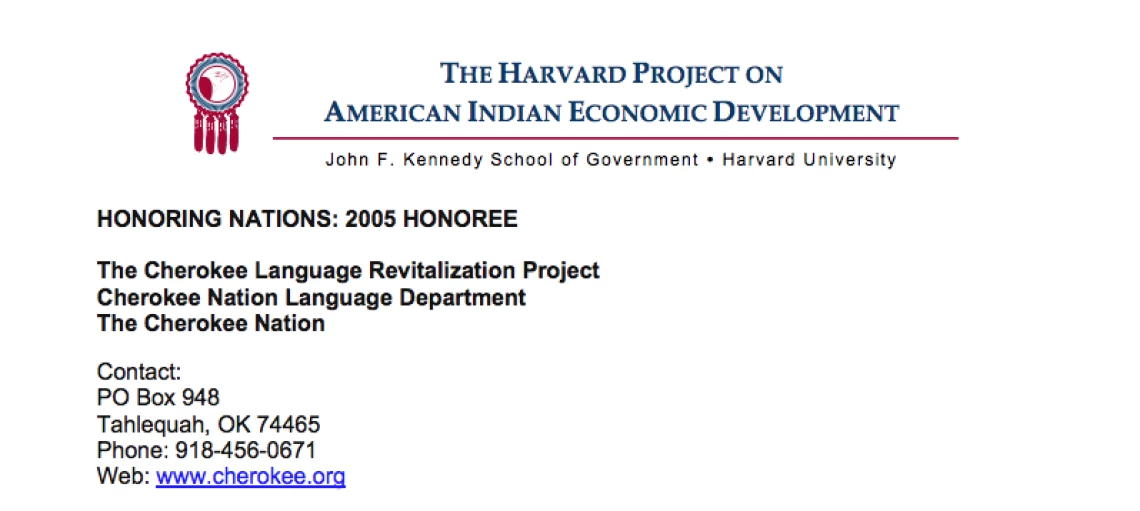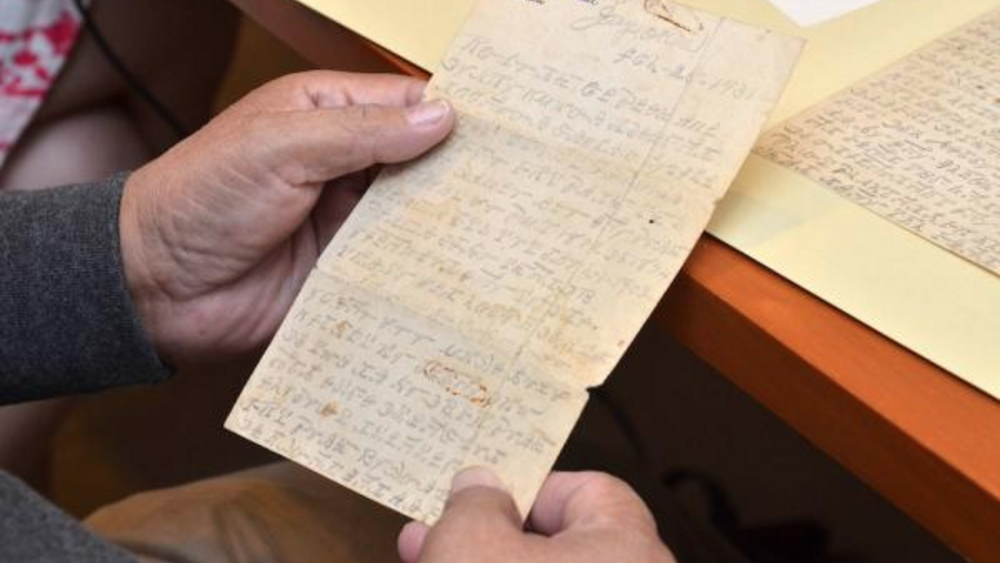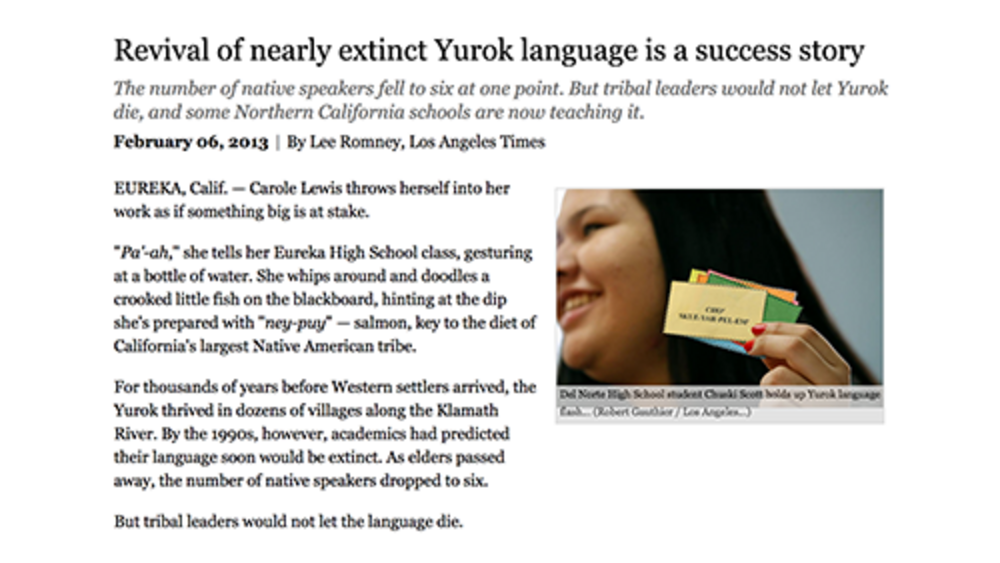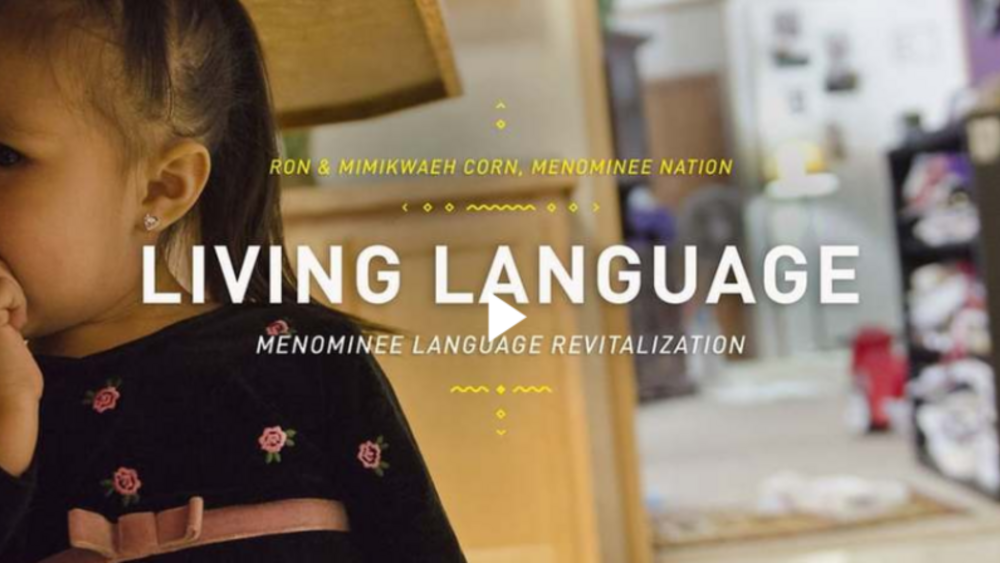In 2002, the Cherokee Nation carried out a survey of its population and found no fluent Cherokee speakers under the age of 40. The Cherokee Principal Chief declared a "state of emergency," and the Nation acted accordingly. With great focus and determination, it launched a multi-faceted initiative designed to revitalize the Cherokee language. Using state-of-the-art knowledge and language acquisition techniques, the Project includes a language immersion program for pre-school children, a university partnership degree program to certify Cherokee language teachers, and community language activities. The project preserves not just a language but a people–who see in their language the foundation of their own survival.
Additional Information
"The Cherokee Language Revitalization Project". Honoring Nations: 2005 Honoree. The Harvard Project on American Indian Economic Development, John F. Kennedy School of Government, Harvard University. Cambridge, Massachusetts. 2006. Report.




